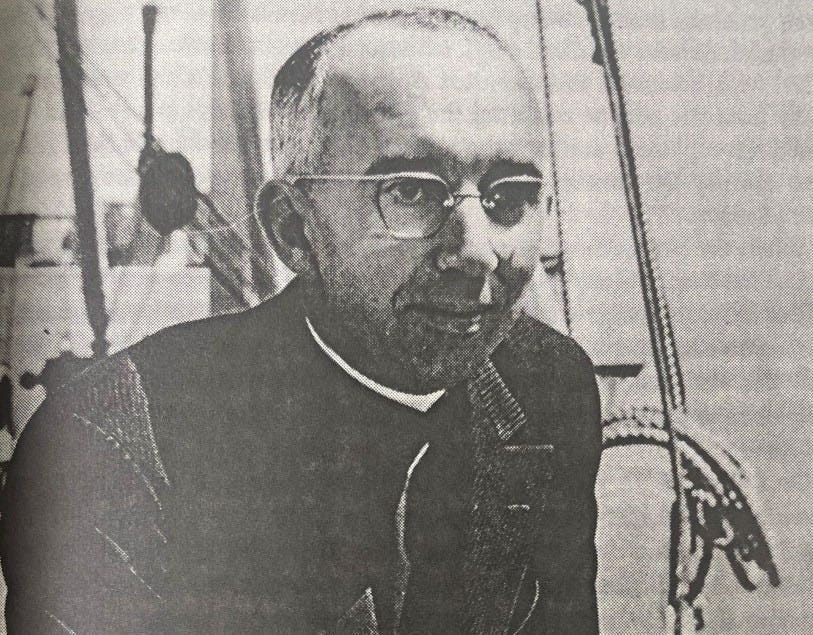Shepherds at War: The Prisoners' Priest
A Passion on the sea
This is part of a series for paid subscribers. Read the first entry here.
No one is exactly sure who first coined the phrase, “There are no atheists in foxholes.” But some believed it was an army chaplain named William T. Cummings. The story goes that he delivered the line while performing an Easter Sunday Mass on Bataan, of Death March fame. But the chain of custody was always tenuous at best. The exact source remains shrouded in mystery. Perhaps the story attached itself so insistently to Cummings because he was the sort of man who inspired legends.
Father Cummings was born in San Francisco in 1903. By the time he had graduated from grammar school at age thirteen, he knew he wanted to be a priest. Two years later, he heard a talk from a missionary priest on his way to China, and that was when he knew he also wanted to be a missionary. But it would be many years until that dream came to fruition in 1940, when he was assigned to serve in Manila. He was physically fragile, and he especially suffered from a bad back. He begged his superiors to let him go anyway, and they agreed.
On the day of the Pearl Harbor attack, Cummings walked into the American Army headquarters and placed his chaplaincy services at their disposal. His offer was not immediately welcomed. The commandant looked him up and down and saw a 38-year-old man, near-sighted, none too tall and beanpole-thin. Nevertheless, he agreed.
Soon, Manila itself came under heavy bombing. Cummings had been working faithfully there with Filipino schoolchildren, but one day, the school burned. Sidney Stewart’s Bataan memoir Give Us This Day recalls the distant, devastated look in Cummings’ eyes when they first met, and Cummings explained he was ready to leave with the men for Bataan. There was nothing left in Manila for him now.
Cummings was allowed to travel by bus to the northern prison camp, where he continued to serve in his usual generous and uncomplaining fashion, never saying “no” to anyone. Some months after their first encounter, Stewart writes that they were reunited. Bitterly, considering the misery all around them, Stewart said, “I can’t understand that this exists and that there can be a God.” Cummings shut his eyes and didn’t answer immediately. “His features were tired,” Stewart remembers, “as though he carried a terrible torment and the burden of many men’s souls.” Finally, Cummings said, “It’s only with God that everything becomes comprehensible.”



